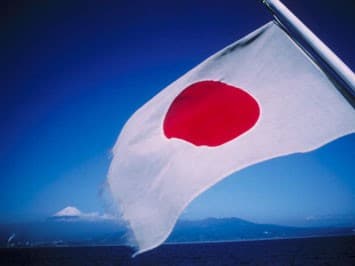
Japanese Business Etiquette – Examining Japanese Business Practices and Culture
by Richard Bysouth, CareerCross Japan
As one would expect from a country with such a strong sense of hierarchy and honor, there are many unwritten laws regarding etiquette and manners that apply to the business world. Although no-one will expect a foreigner to know and abide by all these “codes of conduct”, knowing a few of the basics will go along way to smoothing the path to success in Japan.
When meeting anyone in a business environment for the first time, it is customary to exchange “meishi” (business cards). You should always present yours to the receiver using both hands to hold onto the corners as you pass it forward, stating your name and company as you do so. On receiving a person’s meishi, accept it with both hands and then study carefully what is written on it. Very often business cards will have Japanese on one side and English on the reverse, so you should be able to understand what is written. If you are in a formal situation, it is proper to place the meishi face up on the table in front of you and refer to it as necessary. If it is in a less formal setting you may put the meishi away after looking at it, but please ensure to put it somewhere suitable. Just dropping it into a pocket maybe seen as rude.
When visiting the office of a business associate, you will probably be shown into a meeting room and asked to wait. Most meeting rooms will consist of four or more chairs set around a table. As the honored guest it is important that you take the seat furthest from the door (although that maybe modified if it is a big conference style room) and you should stand up and bow or shakes hands when someone comes in the room. When receiving guests you would reverse the process, with you sitting on the side closest to the door, with the senior member of your party furthest from the door on your side. This “furthest from the door” approach also applies in most other situations, including restaurants, bars, taxis etc etc.
Within your own office life can be somewhat more relaxed although a certain amount of ceremony, involving lots of bowing and scurrying around, will be observed when senior managers are present. Generally though a nod of recognition is fine for those you work with, perhaps together with a comment on the weather or a similar subject. On arriving at your office in the morning a loudly spoken “ohaiyo gozaimasu” or “Good morning” should suffice with an equally loud “osaki ni shitsure shimasu” (literally “excuse my rudeness for leaving before you”) when you leave at the end of the day. This will in turn be usually answered by a chorus of “gokurosama” or “o-tsukaresama”, by those remaining behind.
Confrontation is frowned upon and avoided in Japanese society and this applies to the business world too. A common observation that many foreigners make is that it is impossible to get a straight answer from a Japanese counterparty in a business environment and that every request is met with an uncommitted remark. In this situation, it is important not to get pushy but just go with the flow. Even though a definite no or yes is not forthcoming, you more than likely are making progress and you will eventually get to a situation where everyone agrees, although it may not be at that particular time. Try to get a confirmed date when you can expect to receive an answer and make it clear what you are hoping to achieve, while still respecting the integrity of the other party.
The final point to be aware of is the perennial worry that both Japanese and foreigners have when they meet – should one bow or shake hands!! It is not uncommon for a Japanese company to require all it’s new employees to go through a rigorous training to ensure that they know to what angle they should to, to whom and in what situation. No one will expect you to understand to that level. A simple extended nod of the head followed by a short handshake is probably the easiest compromise, but as long as you show the counterparty respect and politeness, all will be content.
Richard Bysouth, the former Managing Director in Japan of one of the worlds biggest recruitment companies, is currently the CEO of CareerCross Japan (www.careercross.com), an online recruiting web-site focused on the Japanese job market.
For more information, please visit our Frequently Asked Questions page for ordering translated business cards.
You can also use our express FREE Asian Business Card Translation Quote Request Form to select your options and receive a detailed quote for your exact order.
_________________________________________________
AsianBusinessCards.com
Japanese, Chinese & Korean Business Card Translation, Typesetting & Printing Experts



